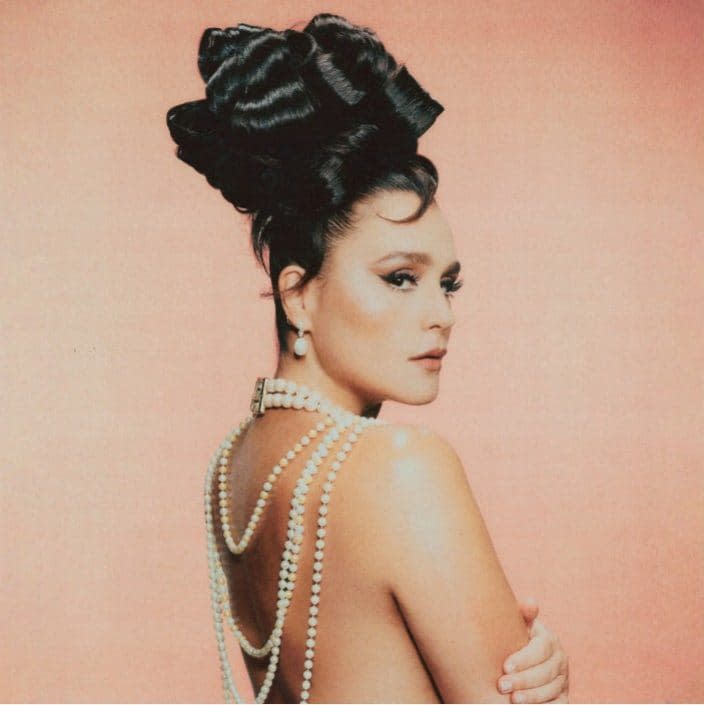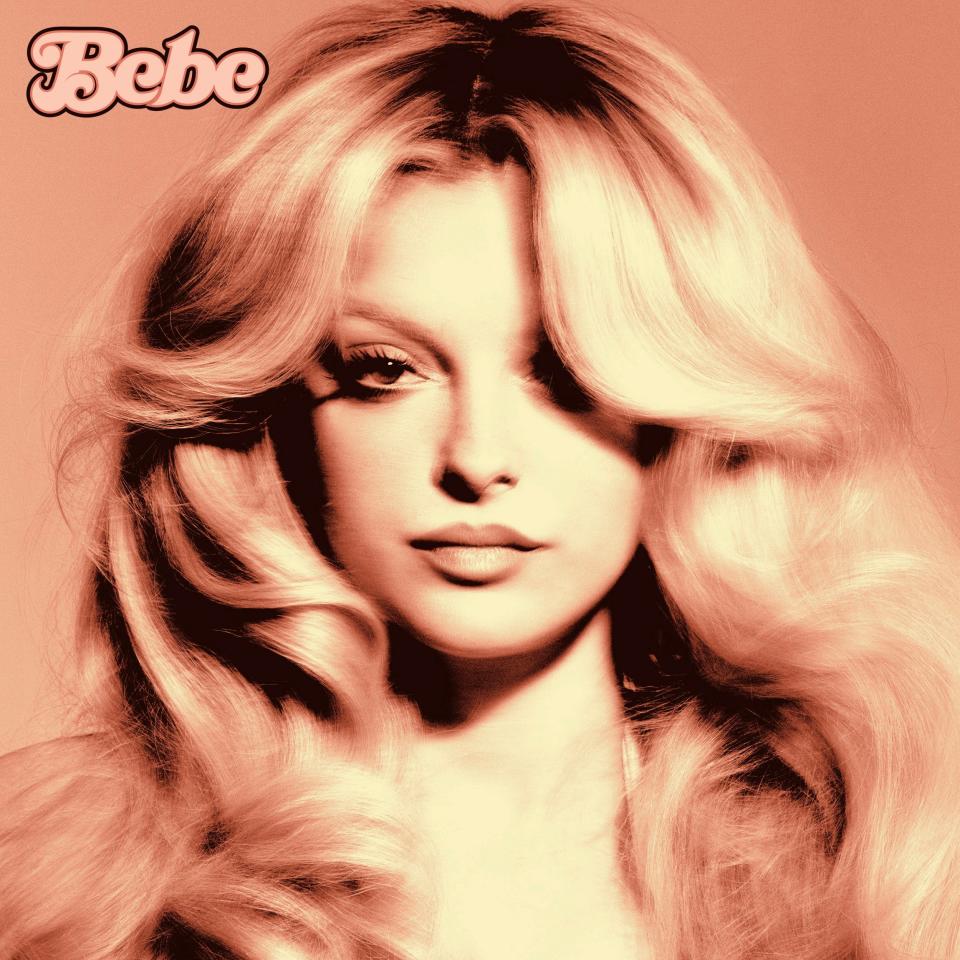The National borrow Taylor Swift, The Damned tear into Gary Glitter – the week’s best albums

- Oops!Something went wrong.Please try again later.
- Oops!Something went wrong.Please try again later.
- Oops!Something went wrong.Please try again later.
- Oops!Something went wrong.Please try again later.
- Oops!Something went wrong.Please try again later.
- Oops!Something went wrong.Please try again later.
- Oops!Something went wrong.Please try again later.
The National, First Two Pages of Frankenstein ★★★★☆
The gestation of The National’s ninth studio album was a curious period. On the one hand, singer Matt Berninger had crippling writers’ block; the 52-year-old was unable to come up with lyrics or melodies for over a year. On the other hand, the Ohio-bred band were being lauded like never before. Their multi-instrumentalist Aaron Dessner worked with Taylor Swift on her Folklore and Evermore albums, and he was also producing Ed Sheeran’s upcoming LP, Subtract. The once-underground band had become favourites of the younger pop mainstream.
First Two Pages of Frankenstein reflects their new status. Most obviously, it features guest appearances from Swift herself, Gen-Z favourite Phoebe Bridgers and Sufjan Stevens. But it also brims with confidence. Not brash confidence, but a conviction by the band that their introspective, hypnotic, painstakingly sculptured indie rock has a defined and secure place in the world.
The album derives its title from the book that Berninger plucked from a shelf in the thick of his slump. The narrator of Mary Shelley’s gothic classic is adrift at sea. That was all he needed: the album reflects this sense of disconnection and loss. Tracks build from sparse piano or guitar refrains, slowly coming to the boil in their closing moments. The National revel in subtlety, and the alliteration of Berninger’s pared-back lyrics often provide a song’s most noticeable hook. “Split-second glimpses and snapshots and sounds” in the chorus of New Order T-Shirt is a case in point. The primacy of lyrics is one of the joys of listening to The National.
After six tracks of comparative musical restraint, there’s a jolt seven songs in. The Alcott is the track on which Swift appears, a song about doomed former lovers meeting in the back room of a pub. She’s journalling; Berninger’s character is still in love with her; she’s trying to move on but – deep down, possibly – harbours feelings too. It’s a play in three acts contained in a song of four and a half minutes. Swift apparently wrote her part in 20 minutes. The Alcott leaps out because of Swift’s poppy harmonies and counter-melodies that burst forth half way through. The tonal shift is so unexpected that the track feels like a transgression by the boys in metaphorical black into unexplored new Technicolour territory, like when Danny Zuko dons a letterman sweater at the end of Grease. But it suits them. I’d go further. It is, to quote Zuko, electrifying.
First Two Pages of Frankenstein is up there with Boxer, the band’s 2007 album on which they thrillingly found their musical feet. This is the sound of a band who’ve honed their sound to such an extent that they’re now towing a whole new generation in their wake. Established fans will love it, while people plucking The National from the shelf to see what the fuss is all about will be encouraged to read a little deeper. James Hall

Jessie Ware, That! Feels Good! ★★★★☆
“What’s your pleasure?” asked Jessie Ware with the title of her highly successful fourth album in 2020. Pleasure remains the dominant force on the follow-up, That! Feels Good!, an album that thrums with tight grooves, loose energy, huge brass arrangements, and plenty of carnal confidence.
What’s Your Pleasure? shifted Ware’s sound from elegant (if occasionally middle-of-the-road) R’n’B electronica to a Chic-ish pastiche that helped disco become one of the sounds of the pandemic – alongside Dua Lipa’s Future Nostalgia and Sophie Ellis-Bextor’s kitchen disco broadcasts. Ware remains more like the latter: there has always been something safe and sophisticated about her sound, mainstream pop at its most tasteful, and for all the hooks and high finesse, a little bit distanced.
That said, the new album has been influenced by the energy of the live shows that promoted What’s Your Pleasure?. “That feels good, do it again,” Ware sings on the opening title track. But she offers something warmer and showier this time, more in line with 1970s funk and soul, particularly on retro-heavy single Begin Again, joyous following track Beautiful People, and the R’n’B tones of Hello Love – her voice at its muscular, sultry best.
These songs shore up the middle of an album that’s front-loaded with singles produced by Stuart Price, including Free Yourself, with its insistent get-to-the-dancefloor piano chords. The energy fades a little towards the album’s end, but not before Ware hints at Jennifer Lopez on Freak Me Now and channels Wet Leg on Shake the Bottle: a catchy roll-call of terrible exes that turns into an instruction manual on how to please her.
The album shines brightest as a whole entity, 40 minutes of unbridled dancefloor passion. As a follow-up to What’s Your Pleasure?, it’s inevitably a little doomed, lacking that record’s magical conditions: the unexpectedly fresh energy amid the lethargy of lockdown. Still, after Pleasure’s anticipatory teasing, That! Feels Good! offers a perfectly competent climax. Kate French-Morris
Freya Ridings, Blood Orange ★★★☆☆
When London-born Freya Ridings toured her self-titled debut in 2019, her beautiful voice and soulful musicality caught the ear of Glastonbury founder Michael Eavis, who gave her a slot on the Glastonbury line-up that very same year.
Her second album, Blood Orange, is a toe-tapping folk-pop collection of 13 polished tracks channelling the ethereal synth-goddess Florence Welsh with a voice as timeless as Adele’s. Face in the Crowd is a yearning ballad lightened by a cascade of piano keys, while the deep, smouldering bassline that anchors Happier Alone is 100 per cent juicy funk.
Apart from the occasional overly-earnest, cheesy number worthy of a Hallmark movie (Can I Jump), these are songs that could boom through a dance club, a stadium stage, or revel in the intimacy of car speakers on the open road, with Ridings’s romantic contralto adding a moody undertone to even the most upbeat pop cuts.
As with the fruit of the title, there is a dark core to the polished exterior. Peel back a layer and Ridings’s singular voice and bittersweet lyrics reveals something thrilling. If you commit to one track only, Weekends is an admission of loneliness that somehow transforms into a disco thriller. Cat Woods

The Damned, Darkadelic ★★★★☆
Last October, these pioneers of British punk rock put aside considerable beefs to reconvene their original summer-of-1976 line-up, burning brightly and extra-chaotically for gentlemen in their late sixties, across just five UK shows. Here, the band’s more high-functioning latterday incarnation resumes business with its fourth post-millennial album.
For 2018’s Evil Spirits, the quality levels rose considerably when singer Dave Vanian and guitarist Captain Sensible poached mid-’80s bassist Paul Gray back from Eddie & The Hot Rods and enlisted mighty Tony Visconti (David Bowie, T Rex) to produce. Continuing that momentum, Darkadelic again blends the sounds of 1982’s Strawberries, where Sensible’s psychedelic-punk songwriting ran riot, and 1985’s Phantasmagoria, for which former gravedigger Vanian coined an ominous, nocturnal style which helped define goth-rock.
As both write completed songs alone, their individual styles thankfully complement each other well: Vanian’s love of vintage movies drives the melodramatic opener The Invisible Man, which midway through collapses in disarray (very punk), while Sensible’s customary swipe at mendacious politicians on Beware of the Clown is all the more persuasive for its stonking pop chorus.
Back in ’76, The Damned were ridiculed by Johnny Rotten and Joe Strummer for avoiding polemical lyrics, but they’ve always tackled the knotty issues of their day: Leader of the Gang finds Sensible, a lifelong fan of early-’70s glam, wrestling with the implications of Gary Glitter’s paedophilia and recent release from prison – “so what’s life like on the run?” runs its bitter pay-off – while Vanian’s Follow Me brilliantly satirises social media as a forum for pathetic attention-seeking and dodgy self-regard.
By the time Roderick closes out with a fully orchestrated baroque dismissal of a former associate (“I’d like nothing more than you darken my doorstep nevermore,” Vanian politely croons), there can be no doubt that Darkadelia lives up to its foreboding title. It also represents one of Britain’s most idiosyncratic and enduringly excellent rock bands, in thrilling form. Andrew Perry
Baby Rose, Through and Through ★★★★★
The most important thing to know about Baby Rose is that she has one of those extraordinarily rare, other-worldly voices that takes your breath away. Expansive, husky and with a velvety depth that makes her age, 28, all the more surprising, the Atlanta-based artist sounds just like a next-generation Nina Simone.
Rose’s new album, Through and Through, proves the artist born as Jasmine Rose Wilson’s potential as another great, with 11 tracks of pure aural gold that showcase not just her voice, but also remarkable production and lyric-writing. Melding soul, stirring rock, upbeat R’n’B, psychedelic funk, pop and more to create her own distinct sound, Wilson writes about her own insecurities, lost loves and search for meaning, so as to speak to universally applicable experiences. Ultimately, this is a record about healing and figuring out life, with all its heartbreak, on your own terms.
Wilson released her breakthrough debut mixtape, To Myself, in 2019, which earned her fans from James Blake to SZA and J. Cole (her collaboration with the latter is Grammy-nominated). Streamed more than 25 million times, it set sky-high expectations for this second record – yet Through and Through delivers on all that promise and more. Where Paranoid is an irresistible, woozy study of that all-too-familiar human tendency to self-doubt, the heart-wrenching ballad Stop The Bleeding sounds like a bona fide Bond soundtrack. The groovy opener Go, about holding onto past love even if it’s unhealthy, is as apt an introduction as any to Wilson’s penmanship.
It’s the balance between raw emotion and the metaphorical that makes Wilson so relatable. The album holds up a mirror to ourselves, with a collection of songs that feel instantly familiar, and yet also deliciously, exhilaratingly new. Kathleen Johnston

Bebe Rexha, Bebe ★★★☆☆
On her third album, pop songstress Bebe Rexha turns back the clock by meshing 70s disco sound with 80s pop and contemporary production.
A pulsating bass line and a bluesy guitar line begins the 12-track album with Heart Wants What It Wants. The beat kicks in alongside Rexha’s smoky vocals giving the song a distinctly organic feel, as she switches out big beats and synths for a more refined, vintage sound.
With its funky bass line clashing with a choppy keyboard line, the mid-tempo jam Miracle Man immediately grabs your attention, its lyrical message centered on self-empowerment and individuality. A familiar voice creeps into upbeat pop throwback Satellite: the rapper Snoop Dogg chopping into his guest verse. The 70s synths and Chic-like melody elevate the single into a sonic nod to times gone by.
Snoop’s not even the album’s biggest guest star. The acoustic ballad Seasons, which closes the album, features none other than the Queen of Country herself, Dolly Parton. A triumph for Bebe’s agent, between the ears, it’s strangely ineffective – both singers have similar raspy, deep delivery and while their voices harmonize well, it’s hard to tell them apart.
Yet Rexha picks the energy back up on I'm Good (Blue). Although the explosive David Guetta collaboration has very little additional information to add to the general theme, it's a gloriously flashy pop anthem.
The tone then shifts drastically for Visions (Don’t Go), a bluesy track that blends understated verses with a fist-pumping chorus. But perhaps the album’s strongest track is the slickly produced Blue Moon. Falling between high-powered Fleetwood Mac and danceable Blondie, Rexha’s vocal firepower here is arguably her best work on the album.
Born Again, however, reels things back in with an atmospheric piano-driven ballad, where theatrics are exchanged in favor of raw introspection. The song has a cinematic quality and could soundtrack an 80s romance.
Overall, though, Bebe’s blurring of past and present sounds is admirable – but in this particular case, the uncertain delivery falls short regardless. Victoria Goldiee

